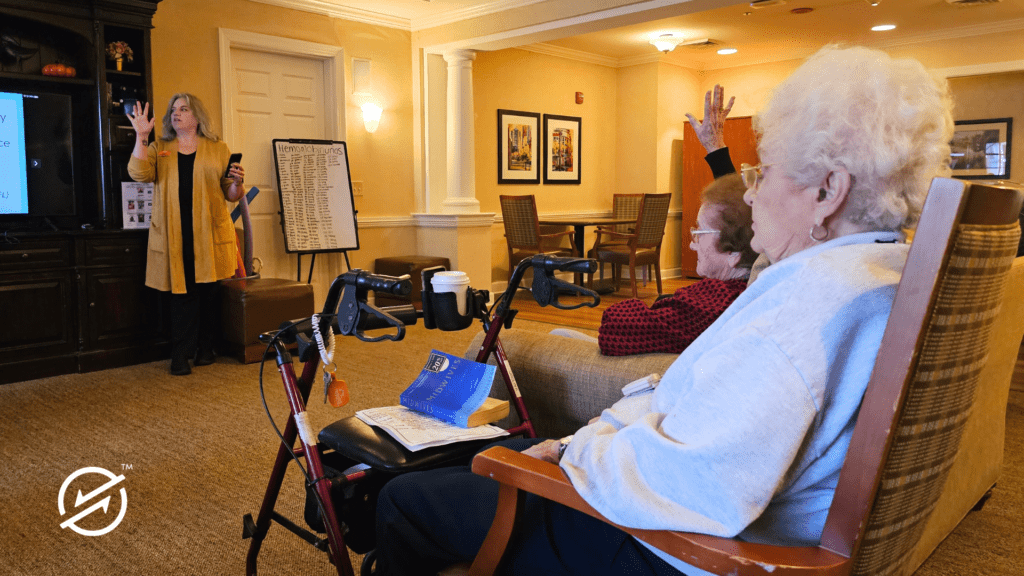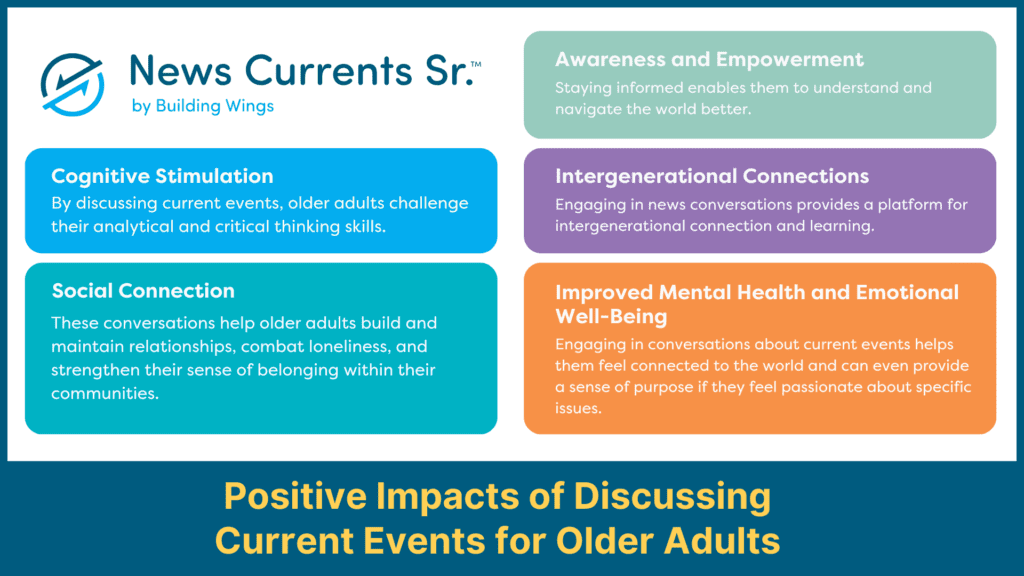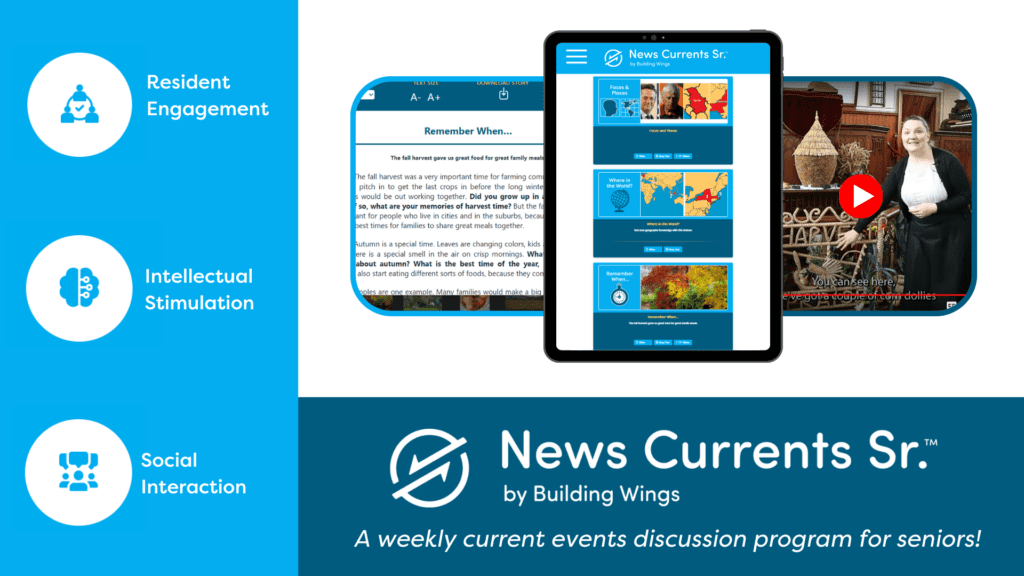
Staying informed about current events is essential at any age, but it’s particularly important for older adults. Actively engaging with the world around us sharpens our critical thinking skills, improves our interpersonal and empathy skills, and helps us maintain a sense of connection with the global community. One effective way to achieve this is by discussing the news.
Engaging in conversations about current affairs not only keeps older adults stimulated and socially connected, but also offers a range of other significant benefits. Bryan James, an epidemiologist at the Rush Alzheimer’s Disease Center in Chicago, studies the impact of social activity on health. In one study, James found that, over a 12-year period, the rate of cognitive decline in older adults was 70% less in people who had frequent social interactions than those with limited social contact.
When the COVID-19 pandemic forced long periods of quarantining, social isolation had a particularly devastating impact on the physical and mental health of older adults. One study found a significant increase in self-reported levels of anxiety, depression, poor sleep quality, and physical inactivity. A different study published in the journal Perspectives–a peer-reviewed journal from the American Speech-Language-Hearing Association–reported additional negative effects including neuroinflammation, substance abuse, physical and nutritional deficits, and an overall decline in health.
Strategies to mitigate the effects of pandemic quarantining, which continue to be felt today, include family connection and cognitive stimulation. Gathering together to talk about the news is the perfect symbiosis of those activities.
Here are some ways that talking about the news can positively impact the lives of older adults.
Positive Impacts of Discussing Current Events for Older Adults

1. Cognitive Stimulation
Engaging in conversations about the news stimulates cognitive functions and keeps the brain active. By discussing current events, older adults challenge their analytical and critical thinking skills. Analyzing different perspectives, understanding complex issues, and evaluating arguments all contribute to cognitive growth. Regular discussions can enhance memory retention, improve attention span, and boost overall cognitive abilities. The continuous mental stimulation associated with news conversations has also been linked to a reduced risk of cognitive decline and conditions such as dementia.
2. Social Connection
Maintaining social connections is crucial for older adults’ well-being. Conversations about the news provide a platform for meaningful interactions and foster social engagement. Group discussions, whether with friends, family, or in community settings, offer opportunities to share opinions, exchange ideas, and engage in intellectual debates. These conversations help older adults build and maintain relationships, combat loneliness, and strengthen their sense of belonging within their communities.
3. Awareness and Empowerment
Keeping up with current affairs through news conversations empowers older adults by arming them with knowledge. Staying informed enables them to understand and navigate the world better. It equips them with the tools needed to actively participate in society and make informed decisions. By being aware of local, national, and global events, older adults can engage in discussions on topics that impact their lives, advocate for their interests, and contribute to public discourse. It also ensures that they are informed voters when they cast their ballots.
4. Intergenerational Connections
Engaging in news conversations provides a platform for intergenerational connection and learning. Older adults have a wealth of knowledge and experience to share, and discussing the news with younger generations allows for the exchange of diverse perspectives. These conversations bridge the generation gap, foster mutual respect, and create opportunities for learning from one another. Younger individuals benefit from the knowledge and historical context of older adults, while older adults get a glimpse into how younger individuals are framing contemporary issues.
5. Improved Mental Health and Emotional Well-Being
Talking about the news can positively impact the mental health and emotional well-being of older adults. Engaging in conversations about current events helps them feel connected to the world and can even provide a sense of purpose if they feel passionate about specific issues. Meaningful discussions can also help older adults process news that may feel discouraging and overwhelming when experienced alone, such as acts of violence, major changes in legislation, or natural disasters.
All Good News!

Engaging with older adults in conversations about the news can have a profound impact on their cognitive, social, and emotional well-being. By staying informed and actively participating in discussions, older adults experience cognitive stimulation, enhanced social connections, empowerment, intergenerational connection, and improved mental health. These benefits not only contribute to a higher quality of life, but also help older adults stay active members of their communities.
Interested in improving engagement, creating opportunities for social interaction, and providing intellectual stimulation for older adults? Learn more about News Currents Sr., a life enrichment resource for retirement communities, assisted living facilities, and other spaces created for seniors.